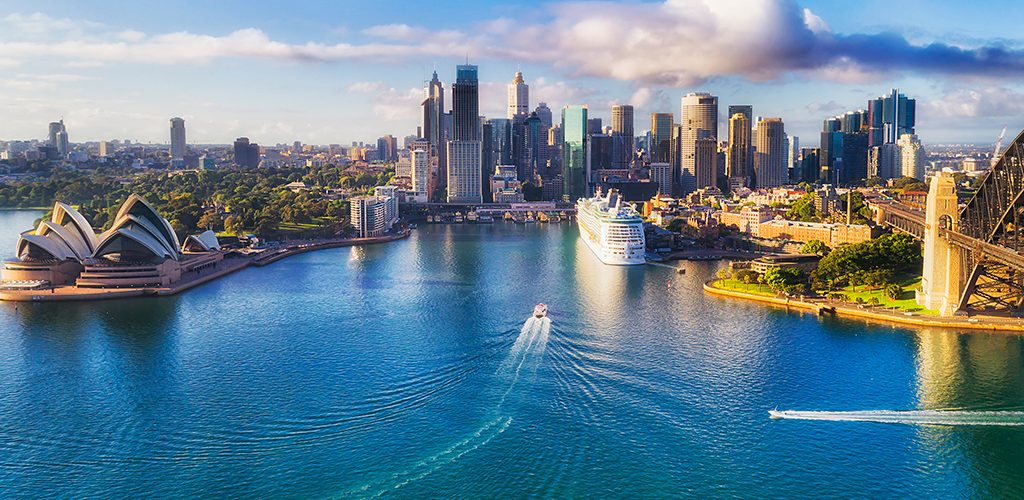Canada is the“most attractive study destination” in the world and its appeal continues to grow, boosted by a strong government policy response to the Covid-19 outbreak.

Despite the pandemic, international students can enter Canada, provided they meet certain criteria. The situation is vastly different in Australia, where students still cannot return, sparking frustration. The country has announced pilot plans to facilitate students’ return, but many remain sceptical as past pilot plans have been mooted and shelved.
These factors are swaying those interested in Australian universities to look elsewhere, surveys suggest. Reports by university vice-chancellors and international education agents say students from India, Nepal and China are heading north instead, to universities in Canada and the UK to seek on-campus experiences instead of online study.
Some students originally bound for Sydney have reportedly “given up” on waiting for Australia’s borders to reopen and take up alternative offers at Canadian universities.
What Canada has done in regards to the pandemic, and what measures have been put in place for international students in order to attract young talented minds to their country:
Open borders
Canada reopened its borders to international students on October 20, 2020, allowing them to take in displaced students unable to fulfil their plans to study in Australia and New Zealand.
In Canada, designated learning institutions (DLI) must have an approved COVID-19 readiness plan in place before welcoming international students back — a prerequisite to the federal government’s decision to open the borders to international students.
On the other hand, Australia’s borders have been closed to students since March 2020. Australia has only had one successful pilot programme, which saw 63 international students returning to Charles Darwin University in the Northern Territory last November.
Recently, South Australia’s plan to bring international students back to the state has been approved by the Australian federal government — making them the first state to do so this year. Previously, pilot plans were shelved due to Covid-19 outbreaks.
Quarantine
Fully vaccinated international students will no longer have to quarantine in Canada if they test negative for Covid-19 upon arrival, according to the latest guidelines for the country’s phased reopening. Canada will relax its border measures beginning July 5, at which point fully-vaccinated travellers permitted to enter the country will no longer need to quarantine.
Thus, students no longer have to perform an additional Covid-19 test on the eighth day. Instead, they will only have to test for the virus twice — three days before arriving in Canada and upon arrival. After confirmation of a negative result on your second test (which should take under three days), students are free to begin their life in Canada.
Easing international students’ PGWP eligibility
The Canadian government previously announced temporary changes to its Post Graduate Work Permit Programme (PGWP), allowing international students to complete their studies online from abroad without affecting their PGWP eligibility. They also announced a pathway to permanent residence for 40,000 international graduates, recognising them as valuable contributors to the country’s social and economic fabric.
Vaccination
Students who are not vaccinated may still enter Canada but will be required to test thrice (pre-departure, upon arrival, and on the eighth day) and quarantine in the country. To be considered fully vaccinated, students must have received the complete dose of a vaccine accepted by the Canadian government at least 14 days before arrival.
Five Covid-19 vaccines are currently approved for use in Canada: Pfizer-BioNTech, Moderna, AstraZeneca, COVISHIELD Verity/Serum Institute of India (SII) (COVISHIELD) and Janssen.
Students must show proof of vaccination in English or French, including the date of vaccination and what vaccination brand they received.
As of June 18, 12.82% of Canadian’s are fully vaccinated, while 64.23% of the total population have received at least one dose of a Covid-19 vaccine. On the other hand, just 3.3% of Australians are fully vaccinated. Australia currently approved two vaccines: Pfizer/BioNTech vaccine and the Oxford/Astrazeneca vaccine.
Read all the Latest News here. Follow us on Facebook, Twitter, Instagram, and LinkedIn.


















Add comment